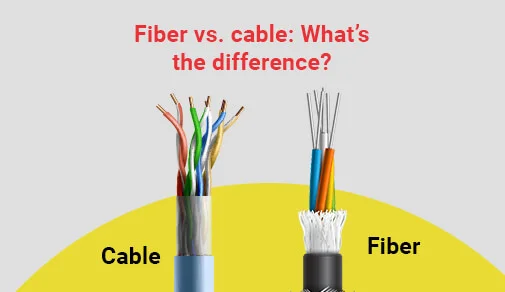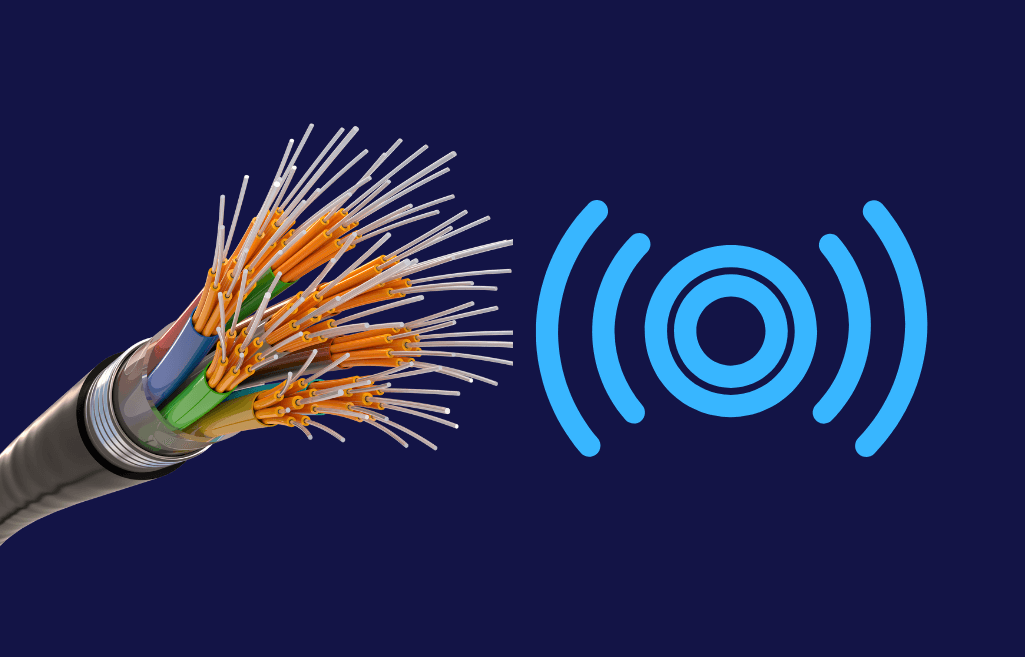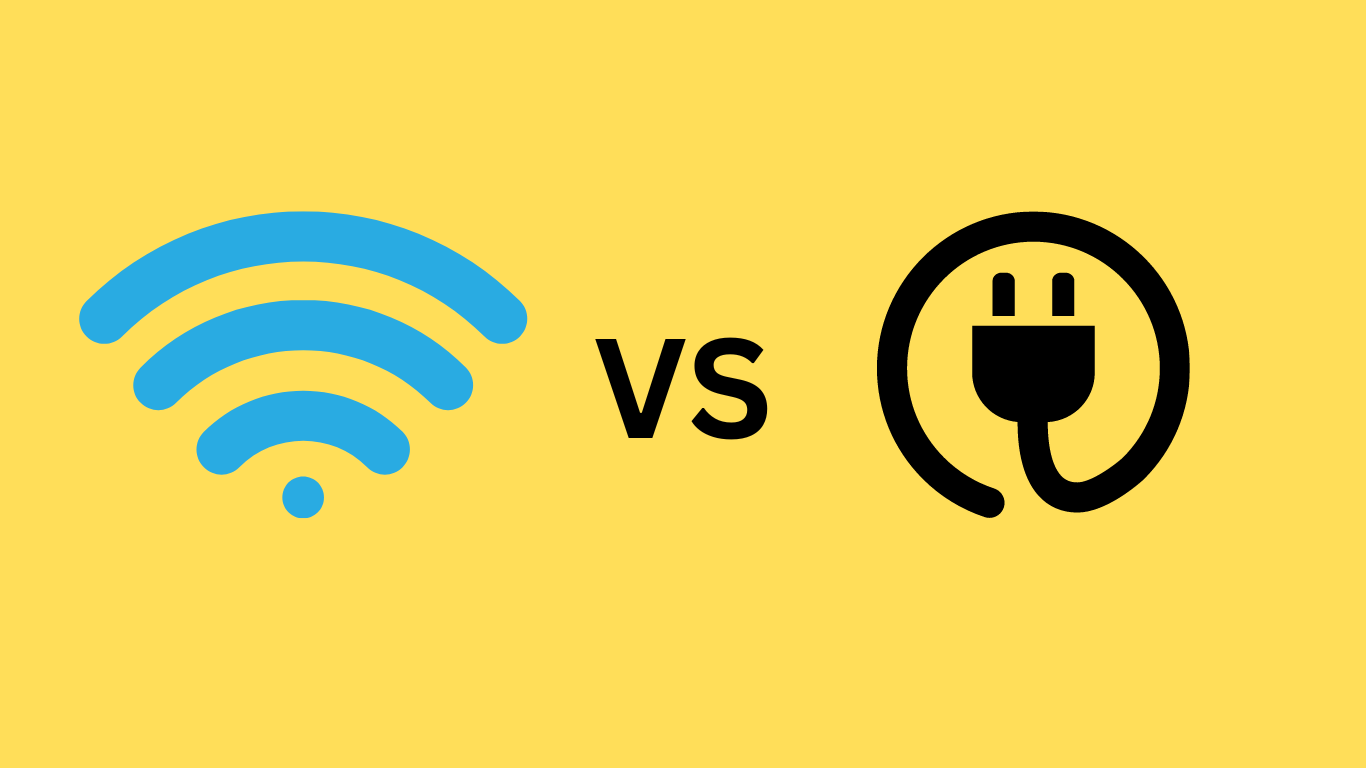Does Fiber Optic Improve Wifi
Do you ever find yourself frustrated by slow and unreliable wifi connections? If so, you may have wondered if fiber optic internet can improve your wifi experience. Well, wonder no more! In this article, we’ll explore the question “Does fiber optic improve wifi” and uncover the truth behind this common inquiry. So, fasten your seatbelts and get ready to dive into the world of fiber optic technology!
If you’re tired of buffering videos and dropped connections, you’re not alone. Many people are looking for ways to enhance their wifi performance. That’s where fiber optic internet comes into play. With its lightning-fast speeds and reliable connection, fiber optic technology has the potential to take your wifi experience to new heights. But is it really the solution you’ve been searching for?
Get ready to have your questions answered as we delve into the intricacies of fiber optic internet and its impact on your wifi. By the end of this article, you’ll have a clear understanding of whether fiber optic can truly improve your wifi connection. So, let’s not waste any more time and get to the bottom of this intriguing question!
Improve your WiFi speed and performance with fiber optic technology. Fiber optic cables transmit data using light signals, resulting in faster and more stable connections compared to traditional copper cables. This means smoother streaming, faster downloads, and reduced lag for online gaming. Additionally, fiber optic networks can handle higher bandwidth, allowing multiple devices to connect simultaneously without sacrificing speed. Upgrade to fiber optic internet to supercharge your WiFi experience!


Does Fiber Optic Improve WiFi?
Fiber optic technology has revolutionized the way we connect to the internet, offering faster and more reliable connections than traditional copper cables. But does fiber optic actually improve WiFi performance? In this article, we will explore the impact of fiber optic on WiFi connections, the benefits it brings, and how it compares to other internet connection options.
The Role of Fiber Optic in Enhancing WiFi Performance
Fiber optic cables are made of thin strands of glass or plastic that transmit data using pulses of light. Compared to traditional copper cables, fiber optic cables have a significantly higher bandwidth, allowing for faster data transfer rates and lower latency. This means that when you have fiber optic internet, your WiFi connection can benefit from these improved capabilities.
With fiber optic, you can experience faster download and upload speeds, which is crucial for activities like streaming high-definition videos, online gaming, and large file transfers. Fiber optic also provides a more stable and consistent connection, reducing the chances of lags or buffering when using WiFi. This is especially important in households with multiple devices connected to the internet simultaneously.
Fiber optic technology also offers better signal strength and coverage compared to traditional copper cables. With fiber optic, the signal remains strong even over longer distances, and there is less signal loss. This means that you can enjoy a strong and stable WiFi connection in every corner of your home, without dead zones or weak spots.
The Benefits of Fiber Optic for WiFi
1. Blazing Fast Speeds: Fiber optics can provide symmetrical speeds of up to 1 Gbps or even higher, allowing for lightning-fast downloads and uploads.
2. Low Latency: Fiber optic has extremely low latency, resulting in minimal lag and a snappy online experience, which is particularly important for online gaming and video conferencing.
3. Improved Reliability: Fiber optic is resistant to electromagnetic interference, environmental factors, and signal degradation, ensuring a consistently reliable connection.
Fiber Optic vs. Other Internet Connection Options
When it comes to WiFi performance, fiber optic outshines other internet connection options such as DSL and cable. DSL relies on copper telephone lines and offers lower speeds and higher latency compared to fiber optic. Cable internet, while faster than DSL, can experience congestion during peak usage times, resulting in decreased speeds for users.
Compared to satellite internet, which relies on communication with satellites in space, fiber optic offers much lower latency and higher speeds. Satellite internet can suffer from signal interference due to weather conditions, making it less reliable than fiber optic.
Overall, fiber optic provides the best combination of speed, reliability, and low latency, making it the ideal choice for households and businesses that rely on WiFi for their daily online activities.
How Fiber Optic Improves WiFi Security
In addition to enhancing WiFi performance, fiber optic technology also improves the security of your wireless network. Unlike WiFi signals transmitted through the air, fiber optic signals are transmitted through a physical cable, making them more difficult to intercept or hack. This provides an added layer of protection for your sensitive data and ensures a more secure online experience.
The Future of Fiber Optic and WiFi
The demand for faster and more reliable internet connections continues to grow, fueled by advancements in technology and the increasing number of internet-connected devices. As such, the future of fiber optic and WiFi looks promising.
Providers and manufacturers are constantly striving to improve fiber optic technology, pushing the boundaries of speed and performance. We can expect even faster speeds, lower latencies, and greater availability of fiber optic connections in the coming years.
With the advent of technologies like 5G and the Internet of Things (IoT), fiber optics will play an essential role in supporting these innovations. As more devices become interconnected, the demand for high-speed and reliable WiFi connections will only increase, making fiber optic the backbone of our digital world.

Conclusion
Fiber optics undeniably improves WiFi performance, offering faster speeds, lower latency, and better reliability compared to traditional copper cables. With the increasing demand for seamless online experiences and the proliferation of internet-connected devices, fiber optic is the future of WiFi connectivity. So, if you have the option to upgrade to fiber optic internet, it’s undoubtedly a worthwhile investment that will enhance your online activities and future-proof your connection for years to come.
Key Takeaways: Does Fiber Optic Improve WiFi?
1. Fiber optic technology can significantly improve WiFi speeds and performance.
2. Unlike traditional copper cables, fiber optic cables use light signals to transmit data, resulting in faster and more reliable connections.
3. Fiber optic connections have higher bandwidth capacity, allowing for multiple devices to connect and stream content simultaneously without experiencing lag or buffering.
4. Upgrading to fiber optic internet can eliminate common WiFi issues such as signal interference and slow connection speeds.
5. Fiber optic networks are more resilient and less prone to outages, providing a more stable and consistent WiFi experience.
Frequently Asked Questions
Welcome to our FAQ section on the topic of how fiber optic improves wifi. Below, you’ll find answers to the most common questions about this technology and its impact on wifi connectivity. Read on to learn more!
1. How does fiber optic technology improve wifi?
Fiber optic technology utilizes thin glass or plastic strands to transmit data through pulses of light. Unlike traditional copper cables, fiber optic cables can carry significantly more information over longer distances and at faster speeds. When used for internet connectivity, fiber optic cables can provide a more stable and reliable connection, resulting in improved wifi performance.
By replacing traditional copper wires with fiber optic cables, internet service providers can offer higher bandwidths, minimizing signal degradation and congestion. This means that more data can be transmitted simultaneously, leading to faster download and upload speeds, reduced latency, and increased overall performance for wifi users.
2. Will using fiber optic for wifi enhance my connection speed?
Yes, using fiber optic for wifi can enhance your connection speed. Fiber optic cables allow for faster transmission of data compared to traditional copper cables. As a result, you can experience significantly improved download and upload speeds, allowing for quicker web browsing, smooth streaming, and seamless online gaming.
With fiber optic technology, you’ll also benefit from symmetrical speeds, meaning your upload speed will be as fast as your download speed. This is particularly useful for activities like video conferencing, file sharing, and cloud backups, where a high upload speed is essential.
3. Does fiber optic improve wifi reliability?
Yes, fiber optic technology improves wifi reliability. Unlike copper cables, fiber optic cables are immune to electromagnetic interference, signal loss, and degradation over long distances. This means that your internet connection will be less susceptible to disruptions caused by nearby electronics, weather conditions, or electrical interference.
Furthermore, fiber optic cables are more durable and less prone to damage from environmental factors such as moisture or temperature changes. This increased resilience ensures a more stable and consistent wifi connection, reducing the occurrence of dropouts or interruptions in service.
4. Can fiber optic help eliminate wifi dead zones?
While fiber optic technology itself does not directly eliminate wifi dead zones, it can facilitate the deployment of devices that can help improve coverage in problematic areas. With fiber optic internet, internet service providers can offer access points with stronger wifi signals or provide options for using additional devices like range extenders or mesh wifi systems.
By combining fiber optic technology with these solutions, you can extend wifi coverage to areas that previously suffered from weak or nonexistent signals. This means you’ll be able to enjoy a reliable wifi connection throughout your home or office, even in hard-to-reach corners or multiple floors.
5. Is fiber optic wifi available everywhere?
Fiber optic internet is becoming increasingly available in many areas, but it may not be accessible everywhere just yet. The availability of fiber optic internet depends on factors such as geographic location and the infrastructure investments made by internet service providers.
While some urban areas and progressive communities have already invested in fiber optic networks, rural areas or less developed regions may still rely on traditional copper-based connections. However, as demand for faster and more reliable internet connectivity increases, the rollout of fiber optic networks is expanding, bringing this technology within reach for more and more people.


Cable vs. Fiber Internet Showdown – Watch This Before You Make Your Choice!
Summary
Fiber optic cables can significantly boost your internet speed and provide a more stable connection. Unlike traditional copper cables, fiber optics transmit data using light signals, allowing for faster and more reliable communication. By upgrading to fiber optic internet, you can enjoy faster downloads, smoother streaming, and better online gaming experiences. So, if you’re tired of buffering and slow internet, fiber optic may be the solution you’re looking for.
In addition to faster speeds, fiber optic internet also offers higher bandwidth capacity, meaning more devices can connect to your network without sacrificing performance. This is especially important in today’s world where we have multiple devices like smartphones, tablets, and smart home devices all vying for bandwidth. With fiber optic, everyone in your household can enjoy fast and reliable internet at the same time. So, if you want to upgrade your WiFi experience, consider switching to fiber optic internet for a better, faster, and more reliable connection.




